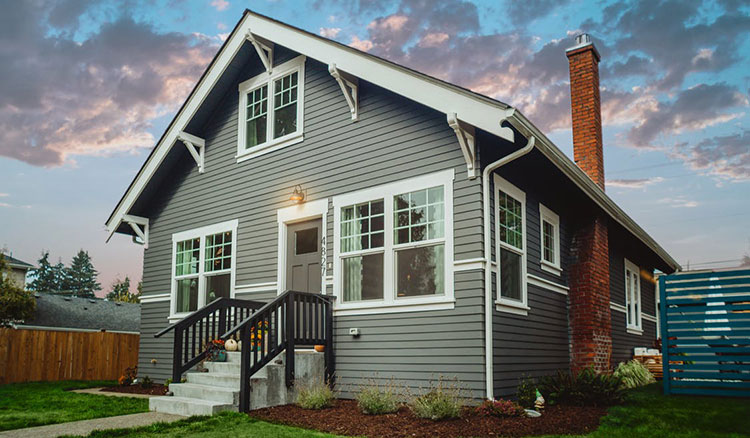When reviewing, comparing, or purchasing insurance for your home or commercial buildings, it’s vital to have accurate insurance-to-value calculations to make sure you have adequate insurance coverage. It’s crucial for homeowners and business owners to have updated information when it comes to renewal time for their insurance policies. At Douglas Residential and Agricultural Cost Guide, we’ve put together a guide to insurance-to-value to help you understand its importance relating to having accurate insurance coverage on your home and structures.
What is Insurance to Value (ITV)?
To put it simply, insurance to value is the calculated cost to replace a building or structure, as close as possible to its original state by an insurer and ensures that premiums adequately cover the value of the improvements located on the property in the event of a total or partial loss. Alternatively, it can be viewed as full disclosure that the building being insured is to the value agreed upon.
Why is Insurance-to-Value Important?
Costs for rebuilding a structure are constantly increasing and demand continues to exceed supply. When replacement costs increase and your insurance coverage does not reflect that, your property cannot be reconstructed for the values that are stated in your insurance policy. Insurance-to-value is a crucial component of any property insurance program as it regularly updates to account for rising construction costs. By updating these values, it can protect your home or business by providing the coverage you need to rebuild the structure in the case of a major loss.
Three Ways to Estimate “Home Values”
There are 3 main home or dwelling ‘values’ used to determine the “value” of a residential structures:
- Market Value
- Assessed Value
- Replacement Cost
What Does Market Value Mean?
A home’s market value is an estimate of the current price that a residence, along with other improvements and including the land/ lot it is situated on could be sold for in a specific real estate market. This is based on a variety of factors that do not necessarily reflect only the physical attributes of the dwelling but also includes factors such as the home’s location, the current real estate market, and other external factors such as:
- The desirability of the school district
- The condition of the house
- Scenic views and landscaping
- Lot size and location
- Economic factors
What is an Assessed Value?
The assessment value of a home is based on the home’s market value and is generally used to determine property taxes. The tax assessment value is usually estimated by a municipal property tax assessor and is based on market value. This may or may not be the same as your current market value depending on when it was assessed.
A tax assessment is based on factors such as:
- Geographic location of the house
- Lot size
- Number of bedrooms
- Number of bathrooms
- Square footage of the dwelling
- Age of the home
- Exterior condition of the home
- Added features such as a deck or garage
What is a Replacement Cost?
Replacement cost is a term used in the insurance industry to reflect the estimated actual cost to replace a home in the event of a loss. For example, in the event of a fire completely destroying your home, a replacement cost claim would be used to cover the cost of labour and materials needed to rebuild your house. In this instance, the lot on which your home is located is not included in the “value” of your home, only the physical structure itself. Replacement cost is based on several factors, including:
- Material & Labour
- Site Supervision Requirements
- Architect Services
- Contractor Fees
- Foundations
- Building Codes
- Class of Dwelling
- Dwelling Size
Understand Your Home’s Rebuild Cost
To ensure the cost to replace your home is fully covered by your insurance company in the event of a partial or complete loss, it’s important to know the replacement cost of your dwelling. Your insurance company may provide you with an estimated replacement cost for your home. However, if you are in the market for a new insurance provider, or are concerned about your insurance coverage, you may want to consider using an independent replacement cost calculator.
The Douglas Cost Guide: Trusted by Canadian Insurance Professionals
Douglas Residential Cost Guide is the most comprehensive independent residential replacement cost calculator in Canada. It’s an essential tool for acquiring an accurate replacement cost for your home and is used and trusted by leading insurance professionals.
The Douglas Cost Guide evaluates a number of specific elements and components of your home and the rebuilding process in order to provide the most accurate replacement cost available. The costing data combines actual construction costs and estimates for residential dwellings in Canada.
In the event of a total or partial loss of your home, ensure that you are properly insured so that your home can be replaced with little out-of-pocket expense. Trust the Douglas Cost Guide to acquire an accurate home replacement cost.

